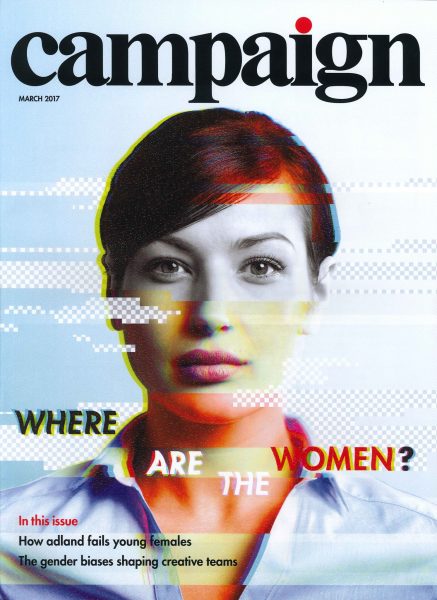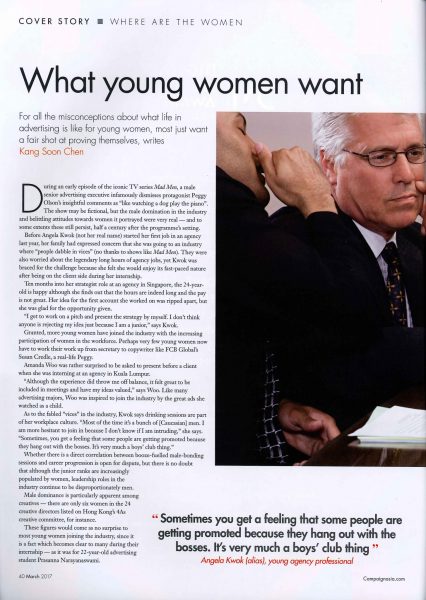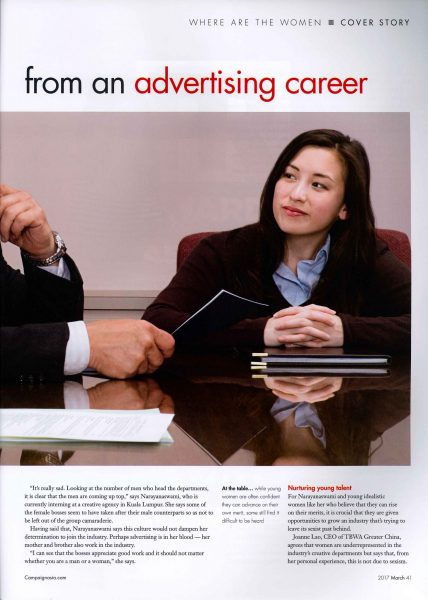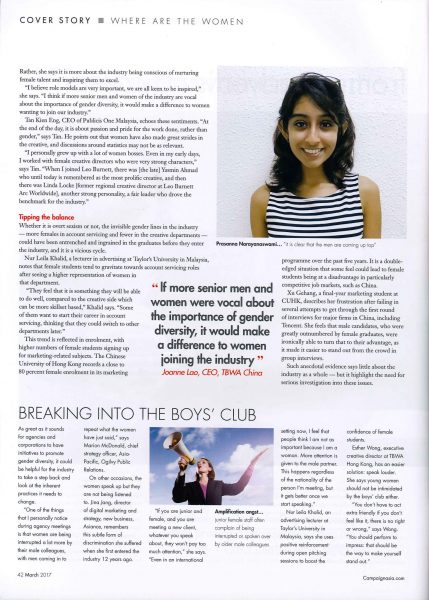What Young Women Want from an Advertising Career

Gehang Xu, a final-year MSc Programme in Marketing student told Campaign Asia that male candidates, who were greatly outnumbered by female graduates, were ironically able to turn that to their advantage, as it made them easier to stand out from the crowd in group interviews.
During an early episode of the iconic TV series Mad Men, a male senior advertising executive infamously dismisses protagonist Peggy Olson’s insightful comments as “like watching a dog play the piano”. The show may be fictional, but the male domination in the industry and belittling attitudes towards women it portrayed were very real — and to some extent these still persist, half a century after the programme’s setting.
Male dominance is particularly apparent among creatives — there are only six women in the 24 creative directors listed on Hong Kong’s 4As creative committee, for instance. These figures would come as no surprise to most young women joining the industry, since it is a fact which becomes clear to many during their internship.
As great as it sounds for agencies and corporations to have initiatives to promote gender diversity, it could be helpful for the industry to take a step back and look at the inherent practices it needs to change.
Whether it is overt sexism or not, the invisible gender lines in the industry — more females in account servicing and fewer in the creative departments — could have been entrenched and ingrained in the graduates before they enter the industry, and it is a vicious cycle.
This trend is reflected in enrollment, with higher numbers of female students signing up for marketing-related subjects. The Chinese University of Hong Kong (CUHK) Business School records a close to 80 percent female enrollment in its full-time MSc Programme in Marketing over the past five years. It is a double-edged situation that some feel could lead to female students being at a disadvantage in particularly competitive job markets, such as China.
In an interview with Campaign Asia, Gehang Xu, a final-year student of MSc Programme in Marketing at CUHK Business School, describes her frustration after failing in several attempts to get through the first round of interviews for major firms in China, including Tencent. Xu feels that male candidates, who were greatly outnumbered by female graduates, were ironically able to turn that to their advantage, as it made them easier to stand out from the crowd in group interviews.
Such anecdotal evidence says little about the industry as a whole — but it highlights the need for serious investigation into these issues… Read More (PDF)
Please also click the image below to view the print coverage in Campaign Asia‘s March 2017 issue.
Source: Campaign Asia
Date published: 20 March, 2017
Photo: Campaign Asia





